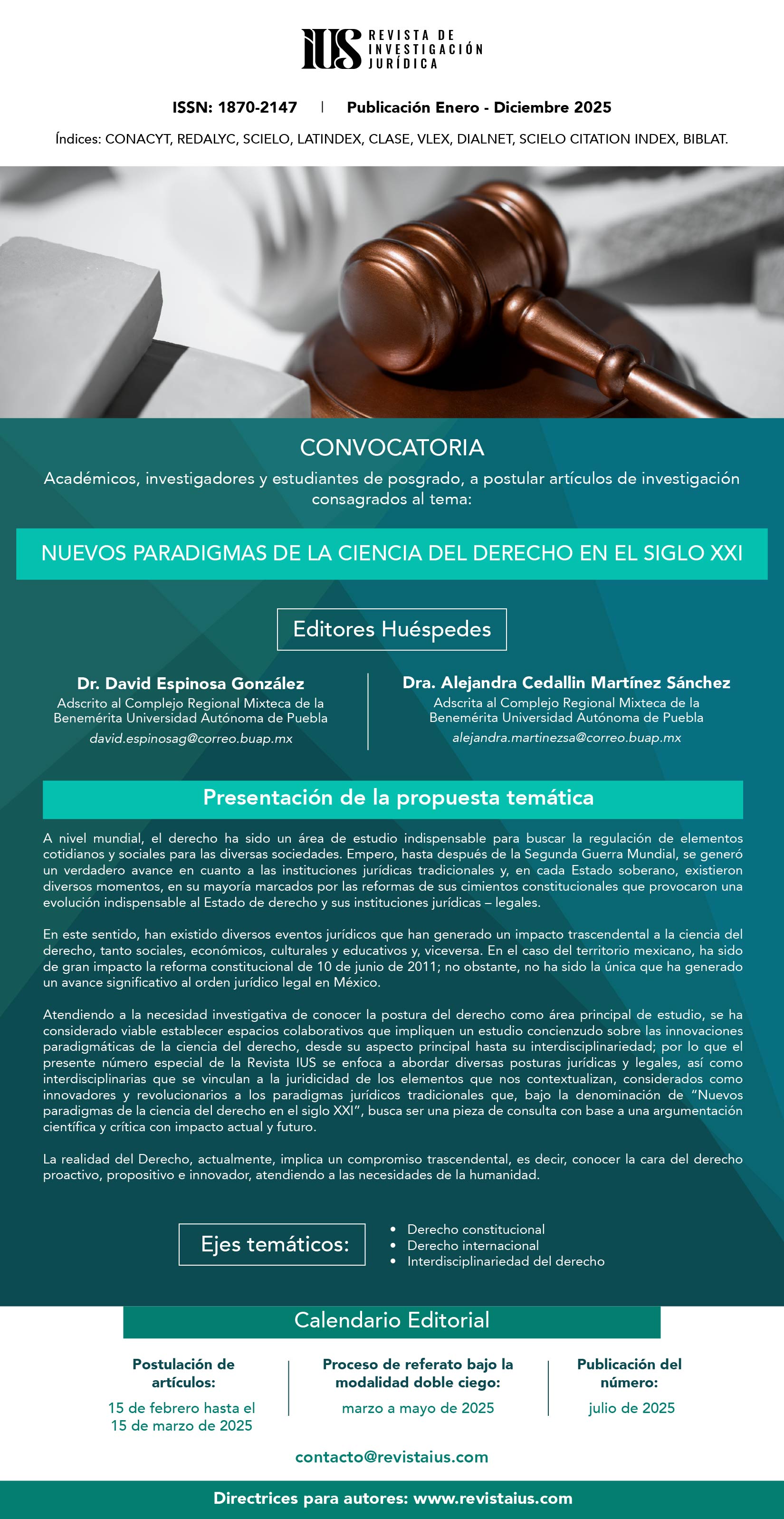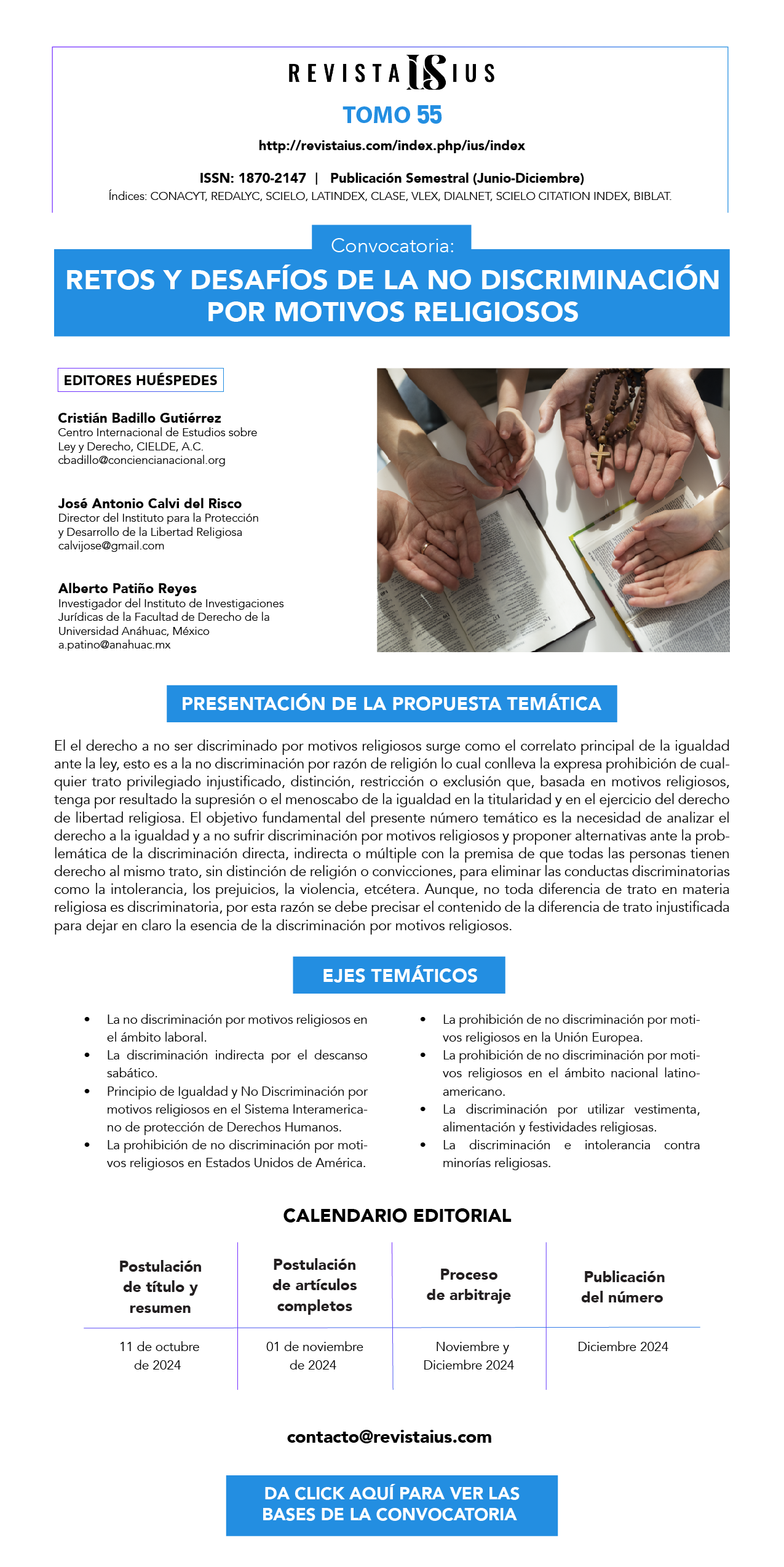Rol y funciones de los jueces ciudadanos en el sistema penal boliviano desde el enfoque psicológico*
DOI:
https://doi.org/10.35487/rius.v8i34.2014.128Keywords:
Jueces, jueces ciudadanos, justicia, percepción, sistema escabino.Abstract
Bolivia ha implementado el sistema escabino de jueces para juzgar los delitos, es decir, la participación simultánea de jueces técnicos y jueces ciudadanos. Si bien la ley señala los criterios para seleccionarlos, muchas veces éstos son insuficientes, sobre todo cuando se trata de personas con bajo nivel académico, incluso apenas escolar. Se observa, asimismo, que el rol del juez técnico suele imponerse por sobre el de juez ciudadano. La investigación se realizó a través de consultas a jueces, fiscales, víctimas e imputados sobre la temática del rol y/o dificultades que perciben en la participación en la justicia de jueces ciudadanos.Downloads
References
Amilcar, N. Misión y jerarquía de abogados y jueces, Depalma, Buenos Aires, 1990.
Nuevo Código de Procedimiento Penal, Ministerio Público, Gobierno de Bolivia, 2001.
Real Academia Española. Diccionario de la Lengua Española, disponible en: www.rae.es.
Raña Arana, Walter Alfredo. Jueces ciudadanos en el nuevo contexto jurídico nacional, Sucre, Bolivia, 2001.
Mosset, J. Responsabilidad de los jueces y del Estado por la actividad judicial, Rubinzal-Culzoni, Santa Fe, 1986.
Nuevo Código de Procedimiento Penal, cit.
Céspedes, L. Psicología forense: principios fundamentales, Universidad Estatal a Distancia, San José, Costa Rica, 2002.
González-Gómez, Gabriela y González-Chávez, Ma. de Lourdes. El juez en el pensamiento de Rawls y Alf Ross, México, 2007.
Soria, Miguel Ángel y Sáiz Roca, Dolores. Psicología criminal, Pearson, Prentice Hall, España, 2006.
Ibidem, p. 210.
Published
Issue
Section
License
Revista IUS, published by the Legal Sciences Institute of Puebla A.C., is distributed under the Creative Commons Attribution-NonCommercial 4.0 International (CC BY-NC 4.0) license.
We authorize collaborators to upload a copy of their published work on their personal websites or any Open Access repository, provided that Revista IUS is specifically cited as the original source, indicating the year and issue of the respective example and adding the link to the webpage on which this publication can be freely consulted in toto and without charge: http://www.revistaius.com
Readers are free to:
Share, copy and redistribute the material via any medium or format.
The licensor cannot revoke these freedoms as long as you follow the license terms.
Under the following terms:
Attribution: You must give appropriate credit, provide a link to the license, and indicate if changes were made.
You may do so in any reasonable manner, but not in any way that suggests the licensor endorses you or your use.
NonCommercial – You may not use the material for commercial purposes.
If you remix, transform or build upon the licensed material, its distribution is not permitted.
Charges for managing articles: Revista IUS will not charge for receiving, processing or publishing articles (Article Processing Charge, or APC) submitted by authors.





